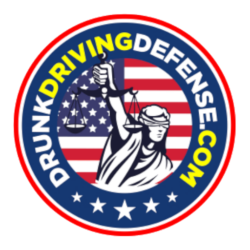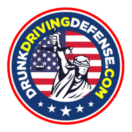If you reach the trial phase in your DUI-DWI case, you certainly want the best possible jury for your case. You want people who are open, fair-minded, and are skeptical of police officers. An experienced DUI attorney will usually make excellent decisions on selecting qualified jurors and excusing jurors who will not give you the “benefit of the doubt.”
The DUI Jury Selection Process
The process of jury selection is a weekly event in most courts. A number of citizens will be called in for jury duty for the week of your trial. From this large group, between fifteen and thirty are chosen to be a jury “pool” for your misdemeanor trial. Your lawyer will help in the “voir dire” process that seeks to uncover juror bias and (hopefully) eliminates these potential jurors. If your state allows the attorneys to question jurors directly, this process may take hours.
Some states utilize 12 jurors (e.g., California) in both misdemeanor cases and felony cases. Other states (i.e., Georgia) use a six-person misdemeanor jury and a 12-person felony jury. So long as a state utilizes 6 or more jurors for misdemeanor cases, the United States Supreme Court has not complained about that. At least one state (Virginia) uses 7 jurors in misdemeanor cases.
After the questioning, each attorney gets to choose in turn which of the jurors to eliminate from your jury. Neither attorney gets to “pick” jurors. Instead, it is a process of elimination of prospective jurors. When all “strikes” have been taken by both attorneys, the remaining jurors make up the jury for your case.
Picking the DUI Jury Tial Jurors
As far as the number of “strikes” available to both attorneys, be aware that two different kinds of “strikes” (or challenges) may be utilized. A “challenge for cause” means the attorney has uncovered clear evidence that this potential juror has indicated either favoritism for one side or the other or antagonism against one side. Each attorney – – – defense and prosecution – – – has an unlimited number of “strikes for cause.” The other type of “challenge” or “strike” is peremptory. Each side gets an equal number of these and may eliminate a juror for any reason that is not based on race or gender as the sole or “motivating” cause.
Jury pools are selected from several lists of citizens. In most states, everyone who is a registered voter will be called for jury duty. The list of potential jurors is usually supplemented from other public lists, such as driver’s license records or real estate ownership records. Absent a legal excuse that authorizes the judge to excuse a juror from your case, a citizen is expected to serve when called upon.
Experienced trial lawyers know which counties have good jury pools and which ones do not. These attorneys will usually tailor their jury selection questions to the “typical” jurors for that jurisdiction. This flexibility and variation is the trademark of a great advocate.
When a seasoned criminal defense attorney is confronted with a particularly “bad” pool of jurors, he or she will modify or adjust the voir dire questions. The reason for this is to try to eliminate – – – for cause – – – a larger number of “bad” jurors.
Further Reading
To learn more about DUI jury trials, take a look at some of our in-depth articles on the subject below:
- DUI Jury Selection Explained
- Who Can Be a DUI Juror?
- What Are DUI Jury Instructions?
- How a DUI Jury Trial Works
- Will I Have to Testify at My DUI Trial?
- Can DUI Charges Be Merged?
- What 3 Verdicts are Possible in a DUI Jury Trial?
- DUI Jury Trial Final Verdict
- Does a Judge Have to Accept a DUI Jury Trial Verdict?
- Found Guilty of DUI by a Jury?
- Can I Appeal My DUI Guilty Verdict?
- DUI Appeal or File for a New Trial
- What is a DUI Sentence?

